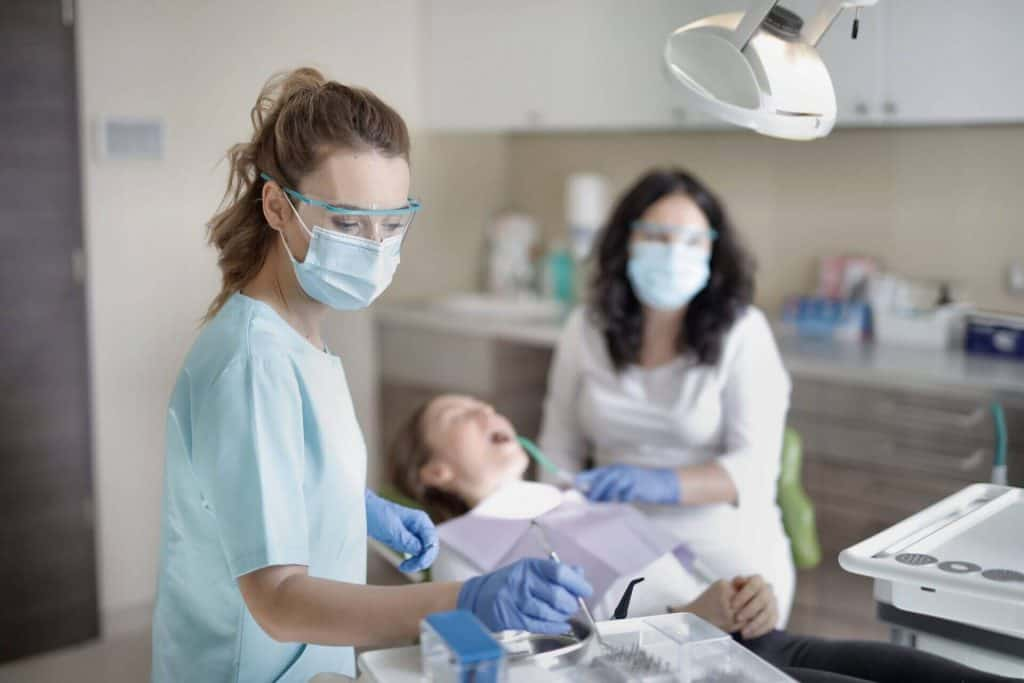As we age, our bodies undergo various changes, and dental health is no exception. Aging brings about specific challenges that require attention and proactive care. From changes in the structure of the teeth and gums to an increased risk of chronic dental conditions, the need for tailored dental care becomes more important with age. In this article, we’ll explore how aging affects your dental health and why it’s essential to adapt your oral hygiene practices to meet these evolving needs. Visiting a dental clinic in Dubai(عيادة أسنان في دبي) regularly can help keep your smile healthy for years to come.
The Impact of Age on Tooth Enamel:
One of the most noticeable effects of aging on dental health is the gradual wearing down of tooth enamel. Over time, enamel—the protective outer layer of your teeth—thins due to everyday use, acidic foods, and beverages. This can result in increased tooth sensitivity and a higher susceptibility to cavities. Older adults may also notice that their teeth become more yellow, as the underlying dentin becomes more exposed as enamel wears down.
To combat enamel erosion, it’s essential to use a toothpaste designed to protect enamel. Additionally, regular visits to a dental clinic can help monitor enamel health and address any issues before they become severe.
Gum Recession and Its Effects:
As we age, our gums naturally begin to recede, a process that can lead to gaps between the teeth and the gum line. Gum recession can expose the roots of teeth, making them more vulnerable to decay and sensitivity. This condition can also make it harder to clean teeth effectively, as food particles and plaque tend to collect in these spaces.
Preventing gum recession involves practicing good oral hygiene, such as gentle brushing with a soft toothbrush and flossing regularly. Additionally, professional cleanings at a dental clinic can help remove plaque buildup and prevent further gum issues.
Increased Risk of Tooth Decay:
Older adults are at an increased risk of developing cavities and tooth decay, even in teeth that have been healthy for many years. This can be due to a combination of factors, including changes in diet, medication side effects, and less effective saliva production. Dry mouth, often a side effect of medications, reduces the mouth’s ability to wash away food particles and bacteria, which can increase the likelihood of cavities.
For older adults, maintaining a consistent oral hygiene routine and staying hydrated are critical steps in preventing decay. Fluoride treatments provided by a dental clinic can also help remineralize the teeth and fight decay.
Dry Mouth and Its Consequences:
As mentioned, dry mouth (xerostomia) is a common problem for older adults, especially those taking medications for chronic conditions like hypertension or diabetes. Saliva plays a vital role in neutralizing acids in the mouth, aiding digestion, and preventing tooth decay. When the production of saliva decreases, the mouth becomes more susceptible to infections, cavities, and bad breath.
To manage dry mouth, it’s important to stay hydrated, use saliva substitutes, and chew sugar-free gum to stimulate saliva production. A dental clinic can provide further advice on managing dry mouth and offer treatments to alleviate discomfort.
Oral Cancer and Its Risk Factors:
With age, the risk of developing oral cancer increases. This type of cancer can affect any part of the mouth, including the lips, tongue, gums, and the roof and floor of the mouth. Smoking, heavy alcohol use, and poor oral hygiene are significant risk factors for oral cancer. The signs and symptoms of oral cancer may not always be noticeable, which is why regular dental checkups are crucial.
During dental exams, professionals at a dental clinic will look for any abnormal growths or changes in the mouth and provide timely interventions if necessary. Early detection plays a vital role in improving the prognosis for individuals diagnosed with oral cancer.
Tooth Sensitivity and Aging:
Tooth sensitivity is another common concern as people age. As the gums recede and tooth enamel wears down, the nerves in the teeth become more exposed, causing discomfort when consuming hot, cold, or acidic foods and drinks. Tooth sensitivity can also be aggravated by teeth grinding, which tends to increase with age.
To alleviate sensitivity, you can use desensitizing toothpaste and be mindful of the temperature of the foods and beverages you consume. In some cases, a dental clinic may recommend special treatments such as fluoride varnishes or dental bonding to protect sensitive areas of the teeth.
The Importance of Regular Dental Visits:
The key to maintaining good dental health as you age is regular visits to a dental clinic. Routine checkups help detect problems early, prevent serious complications, and ensure that your teeth and gums remain healthy. As we age, the need for professional cleanings, fluoride treatments, and personalized dental care becomes more critical. Regular dental visits help you stay on top of your oral health and address concerns before they progress into larger, more costly issues.
In conclusion, aging impacts various aspects of dental health, from enamel wear to gum recession and tooth sensitivity. By adopting a tailored dental care routine and seeking professional assistance when necessary, you can maintain a healthy smile well into your later years. Regular visits to a dental clinic can ensure that your dental health needs are met as you age.






Comments